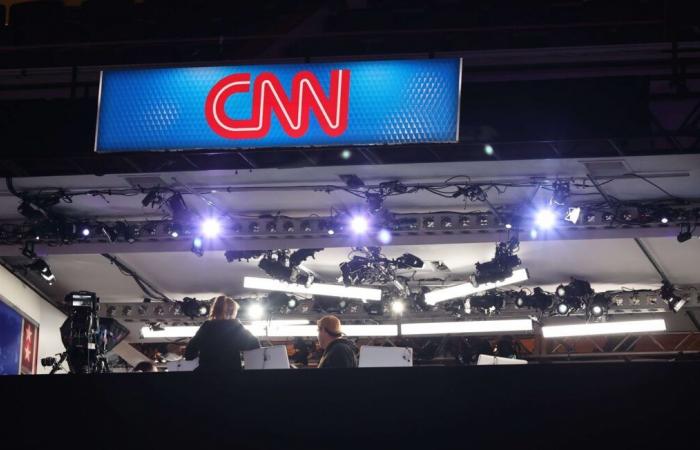An Associated Press-NORC poll, coupled with a sharp drop in audiences for news channels, highlights a striking phenomenon: after months of overconsumption of political news around the presidential election, many Americans, exhausted, choose to drop out. This disengagement illustrates media saturation, particularly among Democratic voters, who express a need to step back from political coverage that they consider omnipresent and often repetitive.
About two-thirds of American adults surveyed said they felt the need to limit their media consumption about politics and government. “People are mentally exhausted,” Ziad Aunallah, a resident of San Diego, California, told AP News. This Democratic voter, once a regular follower of political news, admits to having distanced himself. “Everyone knows what’s happening, and we’re just taking a step back,” he adds.
Television audiences in free fall
Nielsen figures show a drastic decline in audiences for cable channels. MSNBC and CNN, which attract primarily Democratic audiences, saw their prime-time audiences drop 54% and 45%, respectively, after the election. In contrast, Fox News, favored by Donald Trump supporters, recorded an increase of 13%, now attracting 72% of viewers from the three major news channels in the evening.
This post-election trend is not new. In 2016, after the election of Donald Trump, MSNBC experienced a similar decline. But this time, the fall is more marked, and the fragmentation of media habits, with the rise of streaming and digital platforms, could complicate the rebound.
Shared fatigue, but different reasons
The poll reveals that 7 in 10 Democrats turn away from political news, compared to about 6 in 10 Republicans. Sam Gude, an electrician from Lincoln, Nebraska, admits that post-election debates no longer interest him. “The last thing I want to look at right now is the interregnum. » Kathleen Kendrick, an independent voter, criticizes the superficiality of current information: “It would be nice to have both sides, and more research. »
Some spectators express clear expectations. Sam Gude believes that MSNBC, known for its opposition to Donald Trump, needs to diversify its topics. “If the channel wants to expand its audience, it needs to talk about the issues and stop talking about Trump,” he told AP News. Ziad Aunallah, for his part, calls for more depth and variety in content “They spent all this time talking about the election. Why continue watching after the main event is over? »
A possible, but uncertain revival
Historically, viewership of partisan channels rebounds after the presidential transition, as opponents of the new administration seek space to organize. “I will come back once the circus starts,” says Ziad Aunallah, referring to the coming Trump administration.
Find our file on the United States
However, channels like MSNBC could face increased challenges due to the growing shift away from cable television, the growth of streaming platforms (Netflix, HBO Max, Disney+ and many others) and numerous internal reorganizations with layoffs at the key.






